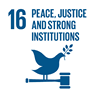This project focuses on assessing the effectiveness of social policies, particularly cash transfer programmes, in supporting economic resilience and reducing the threat of violence in post-conflict settings. It also re-examines the role of international aid and the current international aid architecture in supporting the long-term recovery of fragile and conflict-affected countries.
While social policies have proven effective in improving wellbeing of citizens, building trust in governments, and enhancing social cohesion, evidence on the ability of these interventions to curb violence and prevent the reignition of conflict is scarce.
This project aims to identify entry points for national and international policy actions to better sustain peace and inclusive statebuilding trajectories in post-conflict countries, and for international aid to best support these processes in post-conflict societies.
The key questions this project seeks to answer are:
- With conflicts and other shocks increasing globally, what can be done to strengthen the economic resilience of affected communities in ways that prevent the occurrence of conflict or at least avoid the reignition of violence in the post-conflict period?
- What role do social protection policies and other interventions to protect livelihoods among conflict-affected communities play in supporting sustainable and inclusive peace?
- Is the current international aid architecture able to successfully support the challenges faced by countries emerging from conflict, especially considering ongoing aid cuts across traditional development partners? How can international aid be better leveraged to protect the most vulnerable populations in the world?
Watch this space
All papers, events, briefs, blog posts, and opportunities to engage relating to the project will be available on this webpage.
Several calls for papers are announced under this project in 2024, and the outcomes of the calls are published as open access working papers. The project also contributes to the WIDER Development Conference held in Helsinki in 2025, and other policy discussions around safety nets in post-conflict and humanitarian contexts.

 Join the network
Join the network

